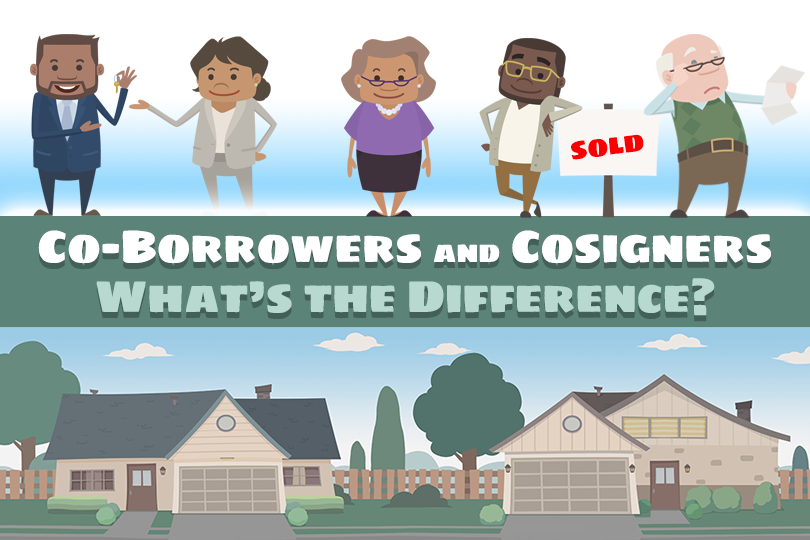Similarities and Differences Between Co-Borrowers and Cosigners
September 2, 2023
What Is a Co-Borrower?
A co-borrower is someone who is listed on the mortgage loan application alongside the primary borrower. They share equal responsibility for repaying the loan and are typically co-owners of the property being financed. During the loan application process they're required to by provide their income details, credit history, and other financial information to help meet the lender's qualification requirements.
Co-borrowers have a legal stake in the property and may have their names on the title and the mortgage documents. FHA loans allow for co-borrowers, including spouses or family members, to combine their incomes and credit profiles to qualify for a larger loan amount or to meet the lender's requirements.
What is a Cosigner?
A cosigner is not typically listed on the mortgage application but can be used in some cases to help the primary borrower qualify for an FHA loan. They're primary role is to provide additional assurance to the lender that the loan will be repaid, and do this by agreeing to assume responsibility for the loan if the primary borrower defaults.
Unlike co-borrowers, cosigners do not have a legal stake in the property being purchased. They don't own or have any rights to the property.
FHA loans are primarily underwritten based on the creditworthiness and financial situation of the primary borrower. In most cases, FHA loans require the borrower to meet the qualifications without the use of a cosigner.
The Bottom Line
The key difference is that a co-borrower is directly involved in the mortgage application, shares equal responsibility for the loan, and has a legal stake in the property, while a cosigner is not directly listed on the application, does not have ownership rights in the property, and provides additional assurance to the lender without being financially involved to the same extent as a co-borrower.
FHA loans are more commonly associated with co-borrowers rather than cosigners, but lending guidelines can vary if a family member is involved. Check with the specific lender for their policies regarding co-borrowers and cosigners on FHA loans.

FHA Loan Articles
November 14, 2024The home you want to buy might seem perfect, or it may have a few flaws that are acceptable in the grand scheme of things. But what about issues you can’t spot just by walking through the property a few times? A home inspection provides an unbiased, expert assessment of the property's condition, uncovering potential issues that might not be noticeable to the untrained observer.
November 12, 2024Escrow is an important feature of most typical FHA loans. An escrow account is a third-party account where borrowers deposit funds designated for property taxes and other uses. Requirements to use escrow accounts typically stems from a need to protect all parties involved in the transaction
November 2, 2024When it’s time to consider buying a home, the Federal Housing Administration (FHA) offers two popular options. One is the traditional FHA purchase loan many use to buy a house in the suburbs. But not everyone wants to buy an existing property. Some want more control over the design and configuration of the home.
The other FHA construction loan option, the one-time close mortgage, comes in here. This option is for those who want to approve floor plans, have a say in the types of materials used to build the home and choose its features.
October 31, 2024When buying a home for the first time, it helps to know how long the process can take. How do you know if your appraisal report is delayed if you don’t know how long the FHA allows for the process to be completed? How long does it take to get from the final offer to closing day? A “typical” FHA loan process may take up to 45 days from start to finish. Several factors can influence this timeline.
October 30, 2024Just because an FHA loan is designed to be more lenient with FICO scores and require a lower down payment doesn’t mean the house you buy with that loan is less than ideal. Did you know that FHA loans have minimum property standards to ensure the home is safe and livable? Those standards require the home to have an “economic life” for the entire term of the loan so you can freely sell the property later on if you choose to do so.







